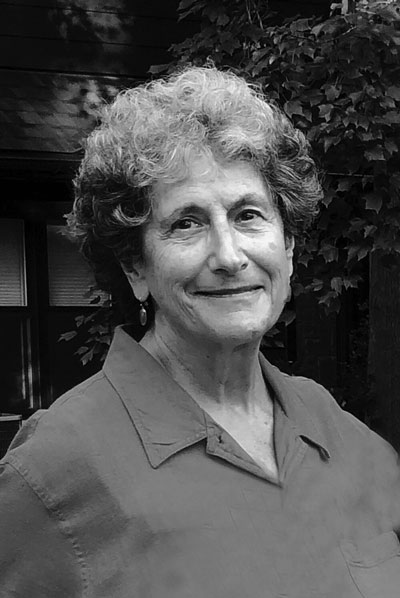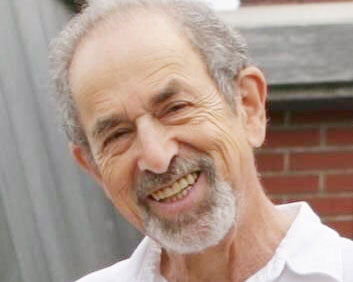Marion Faber ’65

April 30, 2020, in Swarthmore, Pennsylvania, from complications of pancreatic cancer.
Marion was the Scheuer Family Professor Emerita of Humanities and professor emerita of German at Swarthmore College in Pennsylvania. She was fluent in English, German, French, and Italian; the bulk of her scholarship involved the translation of works written in German and reflected her expansive interests in German history and culture—especially literature and music from the 18th century to the present. A prolific scholar, translator, and teacher, she was an expert on the Austrian composer Wolfgang Mozart and the German philosopher-poet Friedrich Nietzsche.
Born in Southern California to second-generation Jewish parents from Russia and Romania, as a high school exchange student Marion traveled to Hanover, Germany. At the time, her knowledge of Germany was sketchy, but in her youthful idealism she believed “we must not hold grudges.” She discovered the delights of Beethoven’s Ninth Symphony and Schlagsahne (whipped cream), the first German word she ever looked up. By the time she returned to the U.S., she had gained not only an appetite for whipped cream, but a desire to learn about castles, classical music, and a sense of Germany’s history.
Marion continued to study German, returning to Europe twice to live and study in Breisgau and Vienna. After beginning her bachelor’s degree at Reed, she finished at UC Berkeley, where she also earned a master’s degree. She received a PhD in German studies from Harvard University. In 1979, she joined Swarthmore’s faculty and published her dissertation, “Angels of Daring: Tightrope Walker and Acrobat in Nietzsche, Kafka, Rilke, and Thomas Mann.”
During her 30-year tenure at Swarthmore, she taught German literature and culture, and developed interdisciplinary courses in film and media studies, women’s studies, and comparative literature. While she admired German composers and poets, Marion felt compelled to teach students about the dark side of German history and culture. She once noted that in her own formal education she’d never been in a class that fully engaged with the events of the Nazi period, let alone attempted to place them within the context of hundreds of years of German civilization.
“It finally became important for me as a Jew, and as a teacher of German, to take the bull by the horns,” she said. Drawing on her deep knowledge of German culture, she designed a multidisciplinary course which examined its key forms, such as Romanticism, and raised a fundamental question: Could the Holocaust have happened anywhere else, and is there something unique to German culture that resulted in it? To prepare, she went to Berlin, visited the concentration camp at Sachsenhausen and the Jewish cemetery in Weissensee, and spoke with historians and philosophers. She took pains to distinguish for her students between German culture and German people. The class, in which students studied history, poetry, memoir, film, and artwork, culminated in a final exam that essentially asked: Is there a connection, and what is it?
Marion worked with Swarthmore’s humanities librarian Stephen Lehmann on a new translation of Human, All Too Human, by the existentialist German philosopher Friedrich Nietzsche. “Nietzsche has a bare, sparse manner that hadn’t been captured in the 1907 translation,” she said. “We tried to be truer to the spirit of the original text.” The volume, which took three years to complete, received much praise and became a bestseller. She and Lehmann also translated a Thomas Mann novella, The Tables of the Law, and coauthored a biography of Bohemian-born pianist Rudolf Serkin, Rudolf Serkin: A Life. Her 1983 translation of Wolfgang Hildesheimer’s Mozart was a finalist for an American Book Award.
In 1994, she translated the first English edition of Mass Rape: The War Against Women in Bosnia-Herzegovina. The book of interviews with Muslim, Croatian, and Serbian women and girls helped raise awareness of the atrocities taking place during the ongoing war in the former Yugoslavia. Her final translation collaboration with Lehmann, In This Hour: Heschel’s Writings in Nazi Germany and London Exile, appeared last year.
Marion was a talented musician who enjoyed playing her grand piano. Aurora Camacho de Schmidt, professor emerita of Spanish at Swarthmore, said, “In many aspects of her life [Marion] revealed the rigorous discipline of someone who accomplishes what she sets out to do and does it with an artist’s sensibility.”
Marion volunteered time at the Chester Children’s Chorus and HIAS Pennsylvania, which supports low-income immigrants in building new lives in the community. She is survived by Stephen Hannaford, her husband of 44 years, and her daughters, Rachel and Dinah Hannaford.
Appeared in Reed magazine: March 2022





![Photo of Prof. Marvin Levich [philosophy 1953–94]](https://www.reed.edu/reed-magazine/in-memoriam/assets/images/2022/LTL-levich1.jpg)
![Photo of President Paul E. Bragdon [1971–88]](https://www.reed.edu/reed-magazine/in-memoriam/assets/images/2020/Bragdon.jpg)
![Photo of Prof. Edward Barton Segel [history 1973–2011]](https://www.reed.edu/reed-magazine/in-memoriam/assets/images/2020/Segel.jpg)








































































